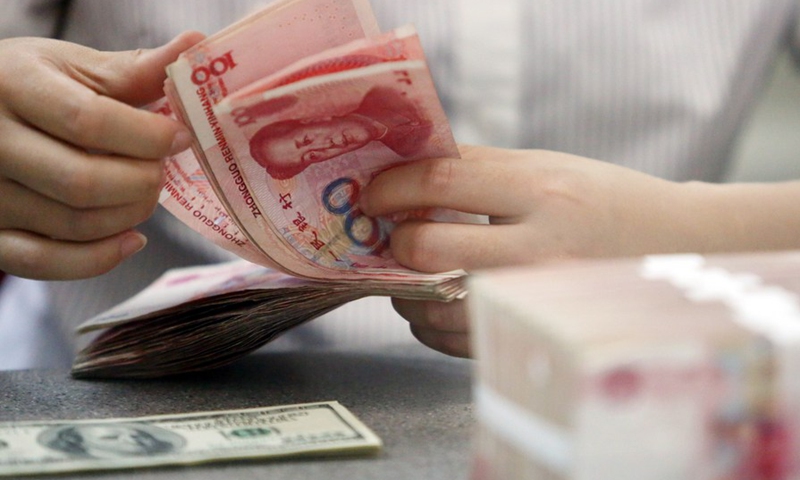
Illustration: Xia Qing/GT
In the face of increasing uncertainty in the global economic and financial landscape, China's foreign exchange and gold reserves, as well as the performance of the yuan, have attracted wide attention in international markets. While Western media outlets often focus on speculative opinions and deliberate pessimism, the reality is that key indicators remain stable, reflecting China's economic stability and resilience against external risks.The People's Bank of China (PBC), the central bank, increased its gold reserves to 73.3 million ounces in December 2024, up from 73 million ounces in November, according to data from the State Administration of Foreign Exchange (SAFE). This marked the second consecutive month of expansion.
China's foreign exchange reserves totaled $3.2 trillion at the end of December 2024, official data showed Tuesday, staying above $3.2 trillion for the 12th consecutive month.
The central bank's increased holdings of gold have driven up the share of gold reserves in foreign exchange reserves. Last year marked the third consecutive year of gold holdings expansion by China. The share of gold in foreign exchange reserves rose from 3.3 percent at the end of 2021 to 5.5 percent at the end of 2024, according to jwview.com, a financial media platform under the China News Service.
Gold serves as a better hedging tool against risks when there is uncertainty and volatility in financial and exchange rate markets. A country's gold reserves can enhance market confidence in its economy, especially during periods of significant uncertainty in the international economic and financial environment.
The current global economic and financial environment is unfavorable, with spillover risks associated with fluctuations in the US dollar and US monetary policy, risks from protectionist tariffs in some Western countries and geopolitical interference in economic and trade cooperation.
The US dollar, as the world's primary reserve currency, has a profound impact on the economies and financial markets of other countries due to its exchange rate fluctuations. For a long time, US monetary policy has primarily focused on serving domestic interests, resulting in negative shocks and spillover effects on international markets. This potential source of risk and uncertainty is expected to persist in 2025.
The international trade situation also faces uncertainties and risks. The trade policies of some Western countries are increasingly leaning toward protectionism, and the implementation of additional tariff measures may exacerbate this situation.
Additionally, uncertainties arising from US geopolitical strategies, such as illegal unilateral sanctions and the politicization of investments, may also lead to significant fluctuations in global financial markets, posing external risks to China's economic situation and trade.
The PBC's move to increase its gold reserves during dips in prices in international markets is conducive to optimizing China's foreign exchange reserve structure. Such measures can help China reduce its reliance on a single foreign exchange reserve, enhance the diversification and stability of its reserve assets, and better respond to fluctuations and uncertainties in the international financial market.
The recent SAFE 2025 work conference emphasized the need to "prevent and mitigate external shock risks" and proposed to "ensure the safety, liquidity, and value preservation and appreciation of foreign exchange reserve assets."
Compared with other major economies, there is still ample room for China to increase the share of gold in its foreign exchange reserves. Under necessary conditions and proper timing, flexibly adjusting the pace of gold purchases and optimizing the structure of foreign exchange reserve assets can further enhance the safety and stability of China's foreign exchange reserves.
These moves will provide strong support for responding to external shocks and maintaining the stability of China's economy and finances. This is also an important strategic choice for China to maintain stable economic and financial operations and to promote the internationalization of the yuan in the face of a complex and changing international situation.
The author is a reporter with the Global Times. bizopinion@globaltimes.com.cn



